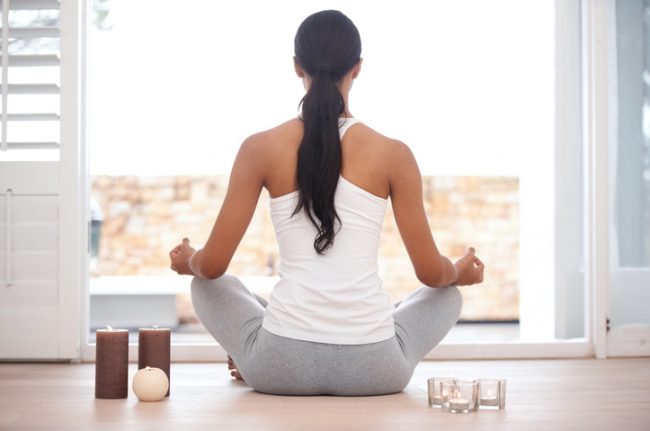The holidays are a time to indulge. But after you gobble down that final bite of pumpkin pie and sip the last of the eggnog, think about dropping such bad habits in 2018.
Taking steps to improve well-being is “our best shield in preventing rising costs associated with illness,” says Diane Hart, president and executive director of the National Association for Health and Fitness, founded in 1979 by the President's Council on Fitness, Sports and Nutrition.
“Our health is certainly our wealth,” Hart says.
With that in mind, here are five steps to building a better you in the new year.
1. Reduce your levels of stress
Stress is a dangerous fact of life for millions of Americans. The 2017 Stress in America survey by the American Psychological Association found that people say they are most stressed by:
- The future of the nation: 63 percent
- Money: 62 percent
- Work: 61 percent
All that worry can take a toll. “Stress is the number one reason for doctor visits by adults,” Hart says.
Fortunately, there are ways to reduce the impact of anxiety. In the Stress and America survey, 46 percent of respondents said they exercise to reduce stress.
“Physical activity combats stress because of the natural release of ‘feel good’ hormones in our body,” Hart says.
Other ways survey respondents reduce stress include:
- Listening to music: 47 percent
- Prayer: 29 percent
- Meditation or yoga: 12 percent
2. Unplug and make time to play
Digital technology is among the wonders of the modern age. But hidden dangers lurk in our obsession with tech toys.
“We have a perfect storm of cellphones and electronics, which do not allow us to separate from our work,” Hart says. “The lines are blurred between work, home and play.”
So, unplug when you return from a hard day at the office. This winter, try skiing, skating or another cold-weather activity. In the spring and summer, take long strolls through the park. Or find a body of water and try kayaking or rowing.
“We need to reconnect with our inner child and make time to go outdoors and play,” Hart says.
3. Ease into your new lifestyle
Each January and February, gyms across the nation see a membership spike as millions try to make good on New Year’s resolutions to become more fit.
Alas, 73 percent of people who make a New Year’s resolution related to fitness quit before reaching their goal, according to a 2012 Harris Interactive study.
Don’t try to transform yourself overnight from couch potato to Olympic athlete.
“People tend to align themselves with an ‘all or nothing’ attitude,” Hart says. “That is self-defeating.”
Instead, ease your way into a more active lifestyle. Your odds of success are much higher with this gradual approach.
“Even if you have 15 minutes to take a walk, that is certainly better than doing nothing,” Hart says.
4. Look for ways to stay motivated
If you stumble while attempting to remake yourself, be honest about the factors that hold you back.
“List your roadblocks, and then employ strategies to overcome these roadblocks,” Hart says.
One good method to stay motivated is to engage in activities you already enjoy, or that you’ve always wanted to try. Another is to get your family involved.
“Have your children join in with your activities -- (such as) building a snowman – and you can get your exercise plus family time,” Hart says.
A new exercise routine can be tough to maintain. But stick with it, and you’ll find that the benefits of physical activity far outweigh the drawbacks.
“Enjoy the reward of feeling better about life through fitness,” Hart says.
5. Be grateful – and stop making excuses
Too often, we use the busyness of modern life as an excuse to avoid the hard work of changing our routines and pursuing a more active lifestyle.
“Most Americans go from sitting at work to sitting at home,” Hart says. “We need to become a strong nation again -- one that built the great cities and settled the West.”
For many years, Hart taught an aerobics class at a community center. A wheelchair basketball league followed the aerobics class.
“When the aerobic people complained about how hot they were or how tough the class was, the wheelchair athletes reminded them that they would give anything to be able to participate in our class,” Hart says.
The nonprofit National Physical Activity Plan urges people to participate in 150 minutes of physical activity on a weekly basis. That’s less than a half-hour each day. Find the time, and make 2018 the year of a new you.
“We need to live up to our tremendous physical potential,” Hart says.




